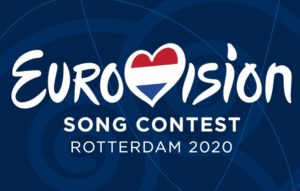For many people across the world, the Eurovision Song Contest is the event of the year that they look forward to the most, hosting Eurovision parties, or gathering in pubs and bars to add some atmosphere to the evening. In the UK, it’s a running joke that we will always come last despite our best efforts to win and I think this is all part of the fun of the event. However, with this year’s contest being cancelled, I thought it would be the perfect opportunity to look back at the history of it and how the use of language in this multi-cultural competition has changed over the years.
The Eurovision Song Contest began taking place back in 1956, and until 1965, there were no rules restricting the languages in which songs could be sung, with some countries opting to sing songs in English rather than their native languages. However, after Sweden’s Ingvar Wixell sang his song in English in 1965, until 1972, it became a rule that ‘a song must be performed in one of the official languages of the country participating’.

When this rule was lifted again in 1973, several winners of the competition were those that chose to sing in English over their native languages such as ABBA. From 1999 onwards, the rules have remained the same allowing ‘a free choice of language’ for contestants, with some countries deciding to mix languages within their songs, and some deciding to use a completely fictional or non-existent language to sing in. Currently, there are only 10 countries that have performed their entries ‘at least partially in an official, regional or national language’ with the only countries to fully use an official language to present their songs being Australia, Ireland, Malta and the United Kingdom.
So, why is the use of non-national languages (predominantly English) becoming increasingly more common? At the end of the day, due to the ‘free-language’ rule, it’s up to the contestant and the broadcasters to choose which language they sing in, and many believe that by singing in a language like English, they are more likely to be understood and get the support of audience members Furthermore, some feel that by singing in English, it gives them more of a platform to launch an international career after the exposure from the contest.
However, it’s not just the songs that involve a variety of languages. The presenters of the show traditionally use English and French to communicate throughout the competition, with co-hosts for national television in each country speaking in their national language for their viewers about the contestants and the background to each of the songs. It’s believed that this is done, as English and French are the two of the biggest languages in Europe and it means that the difficult task of subtitling for each native language is prevented, allowing the contest to remain a live event.
Overall, the Eurovision Song Contest always has been and hopefully always will be, a melting pot for different cultures and languages to be displayed and appreciated, and hopefully will be back on our television screens soon!
